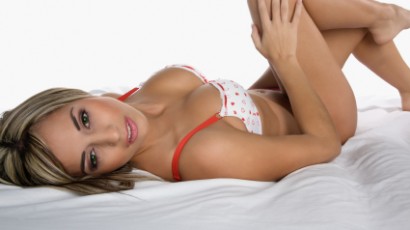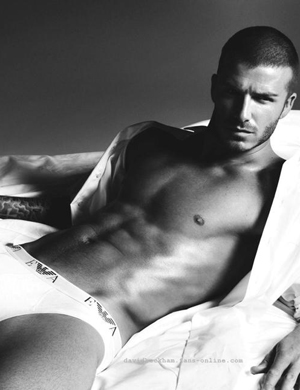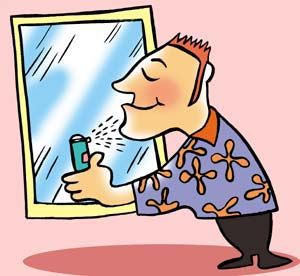In recent posts, I discussed the ugliness factor and how being tall meant you didn’t just make more money, but you’re smarter than shorter people. How’s that for provocative? Today’s post takes the discussion to the next level with “erotic capital” that can be just as valuable as a university degree—especially for women.
This article was originally published in prospect magazine. I’ve reproduced most of it here with additional commentary to put it into the context of this blog which focuses on Exponential strategies to advance your professional career (and business if you’re an entrepreneur or business owner).
 Michelle and Barack Obama have it. Carla Bruni and David Beckham have it. Paris Hilton has even made a career from it. So great is the advantage “erotic capital” can bring to the labour market—especially in sport, the arts, media and advertising — that it often outweighs educational qualifications.
Michelle and Barack Obama have it. Carla Bruni and David Beckham have it. Paris Hilton has even made a career from it. So great is the advantage “erotic capital” can bring to the labour market—especially in sport, the arts, media and advertising — that it often outweighs educational qualifications.
It’s a term I coined to refer to a nebulous but crucial combination of physical and social attractiveness. Properly understood, erotic capital is what economists call a “personal asset,” ready to take its place alongside economic, cultural, human and social capital. It is just (if not more) as important for social mobility and success.
 Erotic capital goes beyond beauty to include sex appeal, charm and social skills, physical fitness and liveliness, sexual competence and skills in self-presentation, such as face-painting, hairstyles, clothing and all the other arts of self-adornment.
Erotic capital goes beyond beauty to include sex appeal, charm and social skills, physical fitness and liveliness, sexual competence and skills in self-presentation, such as face-painting, hairstyles, clothing and all the other arts of self-adornment.
Most studies capture only one facet of it: photographs measure beauty or sex appeal, psychologists measure confidence and social skills, sex researchers ask about seduction skills and numbers of partners. Yet women have long excelled at such arts: that’s why they tend to be more dressed up than men at parties. They make more effort to develop the “soft skills” of charm, empathy, persuasion, deploying emotional intelligence and “emotional labour.” Indeed, the final element of erotic capital is unique to women: bearing children. In some cultures, fertility is an essential element of women’s erotic power.
And even though female fertility is less important in northern Europe (where families are smaller) women’s dominant position in this market has been reinforced in recent decades by a much-lamented phenomenon: the sexualisation of culture.
Since the contraceptive revolution of the 1960s, surveys from around the world reveal a dramatic increase in sexual activities, numbers of partners and varieties of sex. London now hosts an annual Erotica fair, showcasing the new diversity of sexual lifestyles and tastes. World Health Organisation research shows that humans see sexual activity as essential to quality of life — but men still rank sex as more important than women.
Indeed, rocketing global demand for sexual activity of all kinds (including commercial sex, autoeroticism and erotic entertainment) has been far more pronounced among men than women. Sex tourism is essentially a male hobby, while erotic magazines for women often fail.
This creates an effect that should be familiar to any economist: the laws of supply and demand raise the value of women’s erotic capital, in particular their beauty, sex appeal and sexual competence. It is happening in Scandinavia as well as Mediterranean countries, in China and the US. The pattern is confirmed even in countries that are sexually “liberated” such as Finland and France. Men are two to ten times more likely to have affairs, buy pornography, seek lap-dancing clubs and erotic entertainment. Call girls’ earnings can exceed wages in nearly all the professions, despite working shorter hours.
It is true, as feminists argue, that some of these relationships can be exploitative. And, to a degree, women’s new advantage is concealed by the explosion of sexual activity among both women and men under 30, many of whom now regard one-night stands and flings as normal. In this age group there is a parity of libido, but the imbalance returns among men over 30 — surveys around the globe find that women over 30 steadily lose interest in erotic games.
This is an implicit rebuttal to feminist thinkers (like Sylvia Walby, Mary Evans, Monique Wittig or most recently Kat Banyard) who argue that men and women are “equal” in their sexual interest, as in everything else. This is obviously not true, which is why it should not surprise us that some women do use sex, and their erotic capital more generally, to get what they want. It happens as often today as in the past, as illustrated by the daily sexual bargaining described in Australian sex therapist Bettina Arndt’s 2009 book, The Sex Diaries.
The sexualisation of culture affects public as well as private life. Beauty, sex appeal, social skills and the arts of self-presentation have increasing value everywhere, helping to sell ideas, products and policies. Popular culture especially valorises female erotic capital: just look at unkempt boy bands and glossy girl bands. Yes, men with high levels of erotic capital do better than those who don’t. But it is beautiful and elegant women who grace the advertisements for products of all kinds, from cars to detergent—not men.
The economic benefits of being physically and socially attractive can be substantial, especially in marketing, public relations, television, advocacy in the courts, as well as for actors, singers and dancers. But it’s broader than this: people working in the better-paid parts of the private sector are more attractive than those in the public and non-profit sectors.
 It’s been shown in numerous studies that tall and attractive people are more likely to be employed in professional jobs, like law or banking. For the ugly and short, it gets worse. Good-looking people can earn 10 to 15 per cent more than the average-looking, who in turn can earn 10 to 15 per cent more than the plain or ugly. The tall earn more than the short; the obese have earnings 10 to 15 per cent below average. Statistical analysis shows this beauty premium is not really just about cleverly disguised differences in intelligence, social class or self-confidence.
It’s been shown in numerous studies that tall and attractive people are more likely to be employed in professional jobs, like law or banking. For the ugly and short, it gets worse. Good-looking people can earn 10 to 15 per cent more than the average-looking, who in turn can earn 10 to 15 per cent more than the plain or ugly. The tall earn more than the short; the obese have earnings 10 to 15 per cent below average. Statistical analysis shows this beauty premium is not really just about cleverly disguised differences in intelligence, social class or self-confidence.
Studies of lawyers reveal that there is always a premium for attractiveness that varies in size, but is not due to employer discrimination. The most attractive can earn 12 per cent more than the unattractive, and are 20 per cent more likely to achieve partnership in their firm, because they are more effective at pulling in customers.
Indeed, there is a 25 percentage point difference in average earnings between unattractive and attractive minorities. This impact can be as big as the gap between having a degree and no qualifications at all—although it ranks well below intelligence as a determinant of life outcomes.
Intriguingly, this means erotic capital — if seen as an economic endowment — is an especially important asset for people with few intellectual abilities and qualifications. In Brazil, investing in cosmetic surgery is seen as a sensible way of getting ahead in a culture where looks and sensuality count.
In Australia, a recent September 2010 Heat Group Poll of 500 women revealed that 85% believe there is greater pressure on women to be attractive at work compared to men, with 30% having personally experienced appearance-based discrimination. A shocking 18% of Australian women would consider or have already had a cosmetic procedure to improve their appearance in order to get a major promotion at work. The poll further showed that 40% of women know a female that has been hired or promoted because they are physically attractive.
In Britain, too, a 2009 survey of teenage girls found that one-quarter think it is more important to be beautiful than clever. Like it or not, erotic capital is now as valued as economic and human capital.
With this in mind, you might want to attend the Become The Next Corporate Rockstar program where we’ll show you how to improve and enhance all your capital, including your erotic capital if you so choose.
In this day and age one thing is for sure – you can’t approach your career or business as you did a decade ago. Times have changed. The multi-media world is changing the rules of business for everyone.
0 Responses to “Have you got erotic capital?”